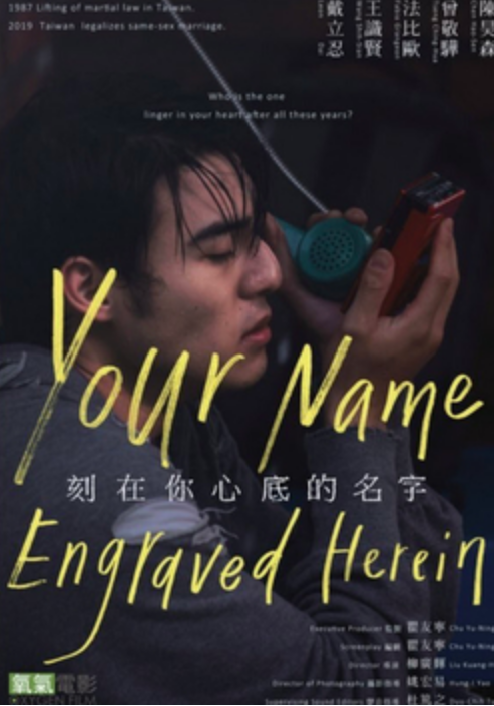Portrait of Desire: A Review of Your Name Engraved Herein
What begins as an innocent crush drives two high school boys apart, risking their friendship, awakening desires, and crossing all the lines between them.
This is the premise of Your Name Engraved Herein, the Taiwanese LGBTQ film that became a hit upon its 2020 release. It is Taiwan’s highest-earning LGBTQ-themed film in history, earning over NT$100 million (about $3.5 million) at the box office.
But more than a commercial success, the film is a modern queer classic.
Your Name Engraved Herein promotional poster
Photo Credit: Wikipedia
Set against the backdrop of martial law, the film follows Chang Jia-han (“Ahan”) and transfer student Wang Po Te (“Birdy”). Homophobia is rampant, made clear in an early scene where a group of boys beat another student in the dorm showers who is rumored to be gay. In another scene, Chi Chia-wei, legendary Taiwanese gay rights activist, is tackled by police while Ahan and Birdy visit Taipei.
And yet, something grows between the two boys, from strangers to friends, to something more.
It’s in the nights they stay up together, sharing snacks or pranking their dorm overseer. It’s in the glances they share when no one’s looking. It’s in the little moments when all that matters is each other - on a shared scooter joy-ride or a late night in an empty movie theater.
Birdy and Ahan exhausted after a night of exploring Taipei.
Photo Credit: Netflix Asia
The time they visited an empty projection room.
Photo Credit: IMDb
Director Patrick Liu keeps Ahan and Birdy in the foreground of the film, draping them in warm light and low music. Their scenes together feel personal, all soft-focused and intimate. And you’ll often hear the tune of a trumpet, which Liu describes as having “a sound quality of wanting to say something, but not being able to get it out.”
Only in dreams can they express what’s within.
Photo Credit: Netflix Asia
Indeed, tension mounts as the desire between Birdy and Ahan can never fully be realized. Their Catholic school, now enrolling girls with the end of martial law, is hardly a place for romance between two boys to bloom. Religious and societal pressures rip them apart at the seams until all that’s left are raw, painful edges.
Alone at last, Birdy and Ahan scream, at no one in particular,
Photo Credit: IMDb
Thirty years later, all the feelings locked away have faded, their vigor stolen by time and a world too cruel to things they can’t understand.
It’s here where the film gives closure to Birdy and Ahan, who meet by chance in the streets of Quebec. It’s here, dim with the glow of streetlamps and the distant moon, where they finally can look back and smile.
That past isn’t so far behind. The love is still there.
With gay marriage legalized in Taiwan as recently as 2019, movies like Your Name Engraved Herein play a vital role in challenging generations-old attitudes that led to suffering for characters like Birdy and Ahan. It’s films like these that illuminate their hidden struggles, legitimize queer youth, and empower them to rewrite the narratives around them.
Regardless of your identity, Your Name Engraved Herein is a gorgeous portrait of youth, capturing its essence for all to admire, mourn, and reflect upon. Tinted blue and newly lit, the future is hopefully for AAPI queer youth than it once did – thanks to increasing representation in films that truthfully tell their stories.





